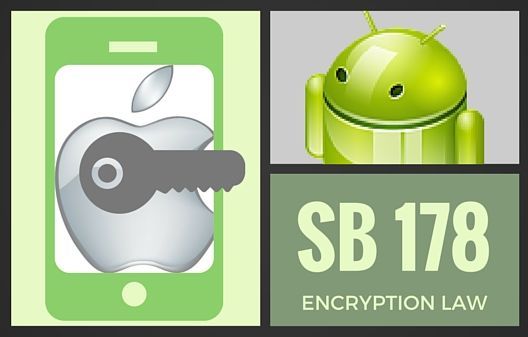
Sree Iyer
Silicon Valley, CA
[dropcap color=”#008040″ boxed=”yes” boxed_radius=”8px” class=”” id=””]Q[/dropcap]uietly, without much fanfare, an encryption bill (SB 178) was passed in California last week. The bill was passed unanimously and is a reworking of a previous bill that was introduced two years ago and vetoed. The salient features of this bill are as follows:
- It requires a search warrant, wiretap order, order for electronic reader records, or subpoena issued pursuant under specified conditions, all of which have to be signed by a judge, except for emergency situations, which are listed as follows:
- Examples of emergency situations are:
- Danger to the life or physical safety of an individual.
- Flight from prosecution.
- Destruction of or tampering with evidence.
- Intimidation of potential witnesses.
- Serious jeopardy to an investigation or undue delay of a trial.
- The California District Attorneys Association, the California Police Chiefs Association and the California State Sheriffs Association have panned it as being redundant with other privacy-protecting laws, as well as presenting roadblocks to investigations.
- Even Federal laws are not clear on this subject. For instance, in the US, the Federal law allows for tracking wireless conversation before it was banned in June 2014. But in a recent case, a federal appeals court ruled that police do not, in fact, need a warrant when seeking phone records from wireless carriers, thereby flip-flopping on its own decision from last year!
[dropcap color=”#008040″ boxed=”yes” boxed_radius=”8px” class=”” id=””]S[/dropcap]o what does all this mean to the common man? Confusion, I guess as the law enforcement agencies have conflicting directions on how to go about doing their job. If they dwell on this for too long, there is a real danger that a perpetrator might escape or worse. It also shows how quickly technology is changing and the judiciary needs to stay in lockstep to understand the implications of some of its rulings.
But a flawed encryption law is better than no encryption law and other states/ countries desirous of crafting encryption laws could take a look at California’s SB 178 and learn from it.
Note:
1. Some of the content is used from Naked Security site of Sophos.
2. Text in Bold points to additional data on the topic.
- Indian Parliament’s Special Session is convened to mark the shifting to new Parliament building - September 3, 2023
- Why did Rajat Sharma of India TV not declare that Adani owns more than 16% shares in his channel? - January 29, 2023
- Prannoy Roy to get Rs.605 crore from Adani as per Stock Exchange filing. Why is Income Tax not acting on Roys’ dues of over Rs.800 crore? - January 4, 2023










